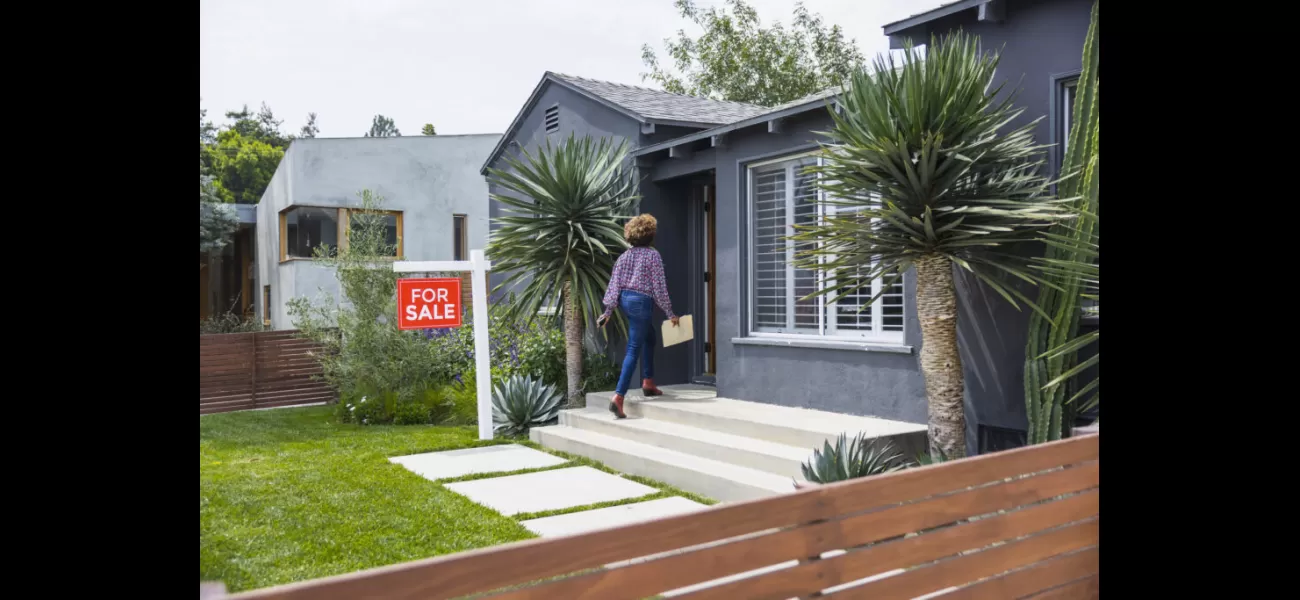Black Millennials are reducing their debt but still struggling to afford homes. Here are 5 tips to help them manage the cost burden.
Improve credit score by reducing debt and avoiding late payments to make buying a home easier. Explore other suggestions for increasing home ownership.
May 14th 2024.

The year 2023 was an eventful one, especially for the millennials. Among the various statistics that were released, one stood out - the 34% drop in non-mortgage debt among Black millennials. This was a significant decrease from the previous year, which raised the question of whether these millennials had managed to erase their debt completely. While there is a possibility of that, real estate expert Jamie Seale believes that it is more likely that the high inflation rates and rising home prices caused these individuals to drop out of the home search and delay their purchase.
On the other hand, the overall number of millennials with a minimum of $10,000 in debt also decreased from 71% to 46%. Seale, who is the author of the Millennial Home Buyer Report: 2023 Edition, shared with BLACK ENTERPRISE that despite the challenging market conditions, non-Black millennials are still actively searching for homes. This is in contrast to their Black peers who are more concerned about qualifying for a mortgage. Seale explained that Black millennials tend to have lower credit scores and are more likely to be rejected for mortgage loans, making it difficult for them to afford a home.
She further emphasized the importance of Black millennials being able to secure mortgages as it is one of the best ways to build generational wealth. According to a study, in 2019, Black homeowners had a median household wealth of $113,130, which is significantly higher than Black renters. However, in order to achieve homeownership, Black millennials are putting down smaller down payments. This is because debt is a major obstacle in saving for a down payment, and it is one of the top three barriers to buying a home for Black millennials. Additionally, 42% of them find the interest rates to be too high, 38% struggle with expensive homes, and saving for a down payment is a challenge for 38% of them as well.
Seale pointed out that 73% of Black millennials plan to put down less than 20% for a down payment, compared to 62% of all millennials. This could be because Black millennials typically earn less than their white counterparts and have more debt. As a result, they may have to settle for homes that are below the national median of $455,000. In fact, only 8% of Black millennials plan to buy a home that costs more than the national median, while 23% of all millennials have such plans.
Furthermore, Seale mentioned that given the current economic conditions, Black millennials are less likely to take financial risks when it comes to buying a home. For example, while 65% of all millennials are willing to purchase a fixer-upper, only 58% of Black millennials are willing to do so. This is because 40% of them fear having to make major repairs, and 39% are worried about the hidden costs of homeownership.
For those who are looking to buy a home, Seale offered some helpful tips. Firstly, she suggested expanding the search to smaller properties, rural areas, or less popular neighborhoods in order to stay within budget. Additionally, improving one's credit score is crucial in a high-cost environment as it can help secure a lower interest rate. She also advised considering a shorter loan term, such as a 15-year loan, which usually has lower interest rates than a 30-year loan. Finally, Seale emphasized the importance of shopping around and talking to multiple lenders to ensure the best deal and lowest rate. She also mentioned the option of postponing the home search for a lower interest rate in the future, but warned of the risks involved, such as continued inflation.
In conclusion, the year 2023 brought significant changes in the financial landscape, especially for Black millennials. While there was a decrease in non-mortgage debt, there were still challenges in securing a mortgage and saving for a down payment. However, with the right strategies and advice, these individuals can still achieve their goal of homeownership and start building generational wealth.
On the other hand, the overall number of millennials with a minimum of $10,000 in debt also decreased from 71% to 46%. Seale, who is the author of the Millennial Home Buyer Report: 2023 Edition, shared with BLACK ENTERPRISE that despite the challenging market conditions, non-Black millennials are still actively searching for homes. This is in contrast to their Black peers who are more concerned about qualifying for a mortgage. Seale explained that Black millennials tend to have lower credit scores and are more likely to be rejected for mortgage loans, making it difficult for them to afford a home.
She further emphasized the importance of Black millennials being able to secure mortgages as it is one of the best ways to build generational wealth. According to a study, in 2019, Black homeowners had a median household wealth of $113,130, which is significantly higher than Black renters. However, in order to achieve homeownership, Black millennials are putting down smaller down payments. This is because debt is a major obstacle in saving for a down payment, and it is one of the top three barriers to buying a home for Black millennials. Additionally, 42% of them find the interest rates to be too high, 38% struggle with expensive homes, and saving for a down payment is a challenge for 38% of them as well.
Seale pointed out that 73% of Black millennials plan to put down less than 20% for a down payment, compared to 62% of all millennials. This could be because Black millennials typically earn less than their white counterparts and have more debt. As a result, they may have to settle for homes that are below the national median of $455,000. In fact, only 8% of Black millennials plan to buy a home that costs more than the national median, while 23% of all millennials have such plans.
Furthermore, Seale mentioned that given the current economic conditions, Black millennials are less likely to take financial risks when it comes to buying a home. For example, while 65% of all millennials are willing to purchase a fixer-upper, only 58% of Black millennials are willing to do so. This is because 40% of them fear having to make major repairs, and 39% are worried about the hidden costs of homeownership.
For those who are looking to buy a home, Seale offered some helpful tips. Firstly, she suggested expanding the search to smaller properties, rural areas, or less popular neighborhoods in order to stay within budget. Additionally, improving one's credit score is crucial in a high-cost environment as it can help secure a lower interest rate. She also advised considering a shorter loan term, such as a 15-year loan, which usually has lower interest rates than a 30-year loan. Finally, Seale emphasized the importance of shopping around and talking to multiple lenders to ensure the best deal and lowest rate. She also mentioned the option of postponing the home search for a lower interest rate in the future, but warned of the risks involved, such as continued inflation.
In conclusion, the year 2023 brought significant changes in the financial landscape, especially for Black millennials. While there was a decrease in non-mortgage debt, there were still challenges in securing a mortgage and saving for a down payment. However, with the right strategies and advice, these individuals can still achieve their goal of homeownership and start building generational wealth.
[This article has been trending online recently and has been generated with AI. Your feed is customized.]
[Generative AI is experimental.]
0
0
Submit Comment





